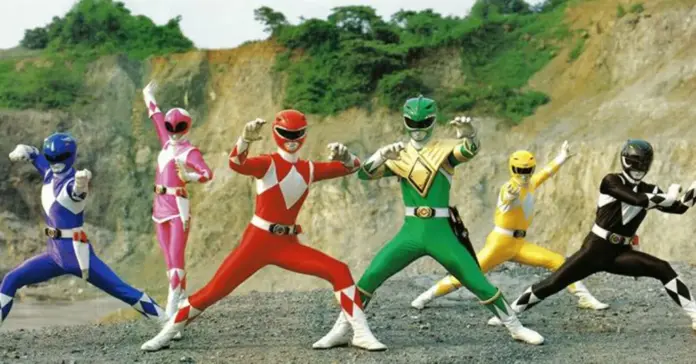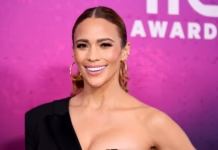Power Rangers Casting Controvery: Mighty Morphin Power Rangers, launched in August of 1993, was an overnight pop culture sensation. Children all over the world watched in their daily doses as teenagers transformed into vibrant heroes fighting against evil. But behind the neon-colored spandex and choreographed fight sequences, the original series bore a contentious choice that continues to cause controversy three decades on.
The Controversial Casting
Tony Oliver, lead writer for Power Rangers’ initial season, recently relived a choice that has been under fire for decades. In an episode of Hollywood Demons entitled Dark Side of the Power Rangers, Oliver confessed that it was “such a mistake” to cast a Black actor as the Black Ranger and an Asian actress as the Yellow Ranger.
Back then, the decision didn’t give anyone pause internally. “None of us were thinking stereotypes,” Oliver explained. The show was hurried, translated quickly from the Japanese series Super Sentai, and into production before this level of cultural consideration was typical. It wasn’t until Oliver’s assistant brought it up in a meeting that the racial optics became apparent.
Also read: Musk’s DOGE Using AI to Snoop On U.S. Federal Workers, Sources Say: Know Details
The Characters Behind the Colors
Walter Emanuel Jones played Zack Taylor who was the original Black Ranger. Thuy Trang, who played Trini Kwan, the Yellow Ranger, introduced a soft-spoken thoughtful quality. She was characterized as “the peaceful one” and the group conscience.
What most fans do not know is that Trang was not the original Yellow Ranger. Audri Dubois was originally cast but departed after a dispute over pay. Trang was recast and digitally inserted into the pilot that ultimately aired.
Behind-the-Scenes Awareness
Ironically, the cast knew about the racial undertones. In a behind-the-scenes video shot by stunt coordinator Jeff Pruitt, Jones playfully quips, “I’m Black, and I play the Black Ranger — go figure.” The footage, seen in the docuseries, demonstrates how the actors themselves recognized the cringe-worthy implications.
Even Amy Jo Johnson, the Pink Ranger, confessed that jokes were cracked on set. “Walter used to make good-natured jokes about that,” she explained. “I think it’s funny if it was done by accident… but really? Come on.”
Also read: Musk’s DOGE Blocked From Trump Ads: Find Out The Details
Recasting and Reactions
By the second season, Jones, Trang, and Austin St. John (Red Ranger) departed the show due to pay differences. They were replaced by actors of various ethnicities, in what seemed to be an attempt to subtly rectify the previous controversy. Johnny Yong Bosch, a Korean-American actor, became the Black Ranger. Karan Ashley, a Black actress, was the new Yellow Ranger.
Although the changes weren’t directly explained on screen, most interpreted this change as a tacit admission of the previous mistake.
Cultural Disconnect or Genuine Oversight?
In a 2013 sit-down, Shuki Levy — co-creator of the show — maintained the problematic casting wasn’t on purpose. “Haim and I were new to this country,” he explained, citing co-creator Haim Saban. “We didn’t have the same sensitivity to skin tone. It wasn’t a big deal where we came from.”
That observation captures a disconnect common in early international productions for American audiences. Whether unintentional or deliberate, the outcome contributed to racial stereotyping when television lacked diverse heroes.
A Different Landscape Today
Such casting choices today would immediately provoke criticism. Audiences are more informed. Studios are more prudent. Dialogue over diversity and inclusion is now paramount to content creation.
“Dark Side of the Power Rangers” puts the spotlight on the way entertainment is evolving, not only in technology and storytelling, but also culturally.
Final Thoughts
The Power Rangers casting scandal is a reminder that even the best of intentions can have unforeseen repercussions. A straightforward color assignment was turned into a racial blunder that lasted for years. But by learning from the past, creators such as Tony Oliver pave the way for better storytelling in the future.







